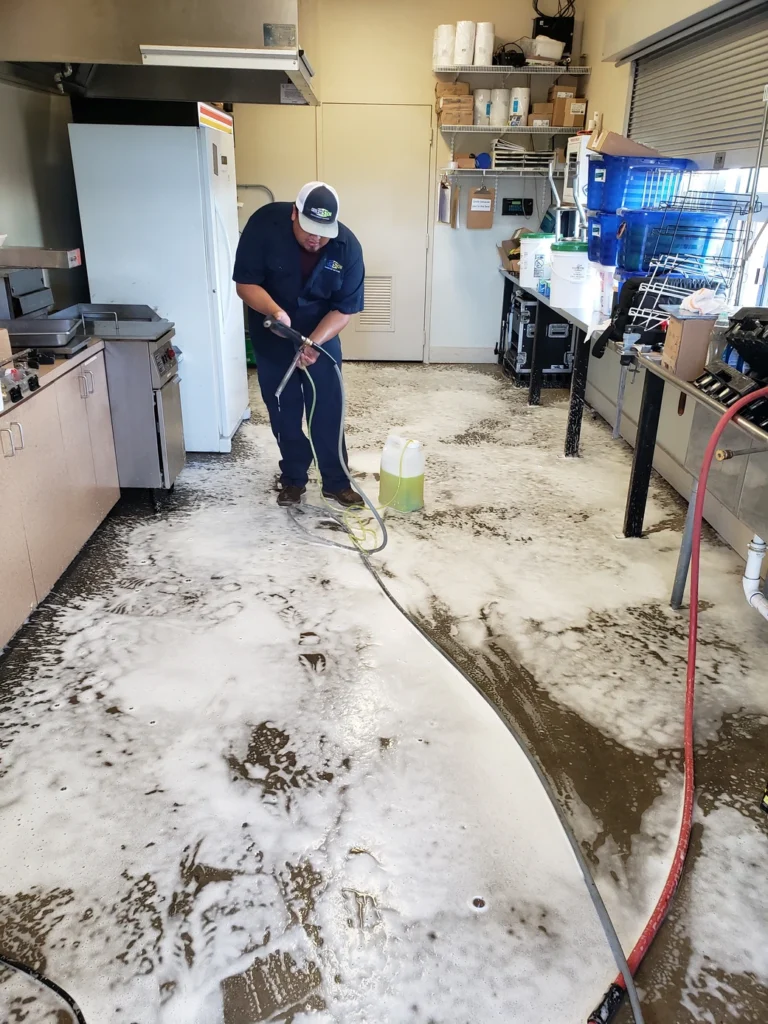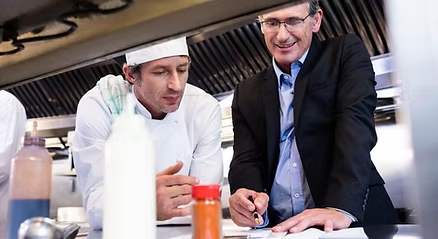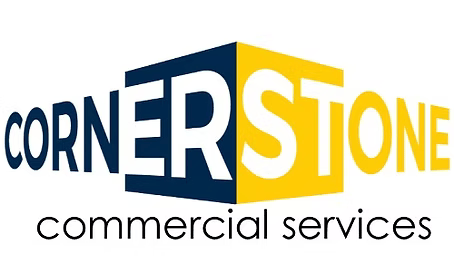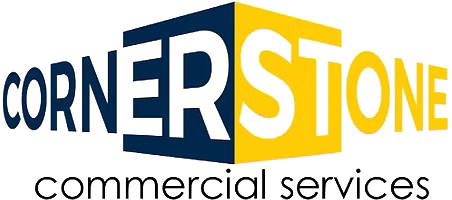Preparing for a health inspection to ensure your restaurant is up to code requires meticulous planning and execution. So, let’s go over the essential steps you must take to prepare your restaurant for a health inspection successfully!
Understanding health inspection guidelines
Understanding health inspection guidelines is crucial for the smooth operation of your restaurant, especially when it comes to commercial kitchen cleaning. These guidelines are the road map to maintaining a safe and sanitary food preparation environment. To begin, acquaint yourself with local health codes, which often vary from one place to another. Check out official health department resources that provide detailed information about your standards. Keeping your commercial kitchen in top-notch condition ensures you pass inspections with flying colors! By comprehending these guidelines, you’ll know what health inspectors look for and can take proactive steps to meet and exceed their expectations.
Developing a comprehensive cleaning schedule
Creating a thorough cleaning schedule is paramount for the smooth operation of any restaurant. It’s the basis of maintaining a clean and hygienic environment, ensuring your customers’ and staff’s health and safety. Start by breaking down tasks into daily, weekly, and monthly routines, covering everything from wiping down surfaces to deep cleaning ovens and refrigerators. Assign responsibilities to your team members to ensure accountability, too. Regularly inspect the kitchen and dining areas to identify areas needing extra attention! Consistency is key, so stick to the schedule religiously to prevent dirt and grime buildup. By implementing a comprehensive cleaning schedule, you meet health inspection standards and create a welcoming atmosphere that keeps patrons returning. Plus, it boosts staff morale, fostering a sense of pride in maintaining a spotless restaurant.

Prepare your restaurant for a health inspection with staff training and education
Investing in staff training and education is a cornerstone of working to prepare your restaurant for a health inspection. That ensures that your team understands and adheres to critical food safety and hygiene practices, and it even enhances the overall efficiency of your establishment. Well-trained employees are likelier to handle food carefully, follow proper hygiene standards, and provide exceptional customer service. In addition, employee training will also help you optimize your restaurant’s everyday operations! When your staff is well-versed in their roles and responsibilities, they can work cohesively, reducing errors and ensuring a smoother workflow. Regular training sessions also enable you to update your team on the latest industry trends and regulations, keeping your restaurant ahead of the curve.
Caption: Your staff must always be aware of these guidelines while working!
Alt tag: Employees at a restaurant in the middle of work
Food storage and handling procedures
Proper food storage and handling procedures help you prevent foodborne illnesses, maintain food quality, and comply with health regulations. Ensure you follow guidelines for storing food at the correct temperatures, preventing cross-contamination by separating raw and cooked foods, and implementing the ‘first in, first out’ (FIFO) inventory management system. Moreover, this is essential to keep your commercial kitchen organized and clean, and you don’t want to over-rely on professional restaurant kitchen cleaners for this task. Also, regularly inspect your inventory and promptly dispose of expired or spoiled items. Labeling and dating food containers can also be a lifesaver in ensuring freshness and safety.

Maintaining equipment and facilities
Effective maintenance of your restaurant’s equipment and facilities ensures smooth operations and a safe environment for everyone. Furthermore, regular equipment maintenance schedules are essential to prevent breakdowns, which can disrupt your business and lead to costly repairs. Proper calibration of kitchen appliances also guarantees that your food is consistently prepared to perfection. In addition, keeping restrooms and dining areas clean and sanitized is about more than meeting health inspection standards; it also enhances your customers’ overall dining experience. Neglecting maintenance can lead to negative reviews and a tarnished reputation, harming your restaurant’s success. Therefore, investing time and effort in maintaining equipment and facilities always pays off in the long run.
Ensuring food safety
Ensuring food safety in your restaurant is paramount. Regular temperature monitoring and adherence to safe thawing and reheating practices are fundamental. Implementing a HACCP (Hazard Analysis and Critical Control Points) plan can help you identify and mitigate potential food safety hazards. So, you need to be aware of the top areas in your restaurant you need to clean, and if you rely on professionals, you need to look for food-safe commercial kitchen cleaning companies. Consistently maintaining cleanliness in food preparation areas, storage spaces, and dining areas is crucial to prevent contamination. Keeping a vigilant eye on hygiene practices, from handwashing to glove usage, is equally important. By prioritizing food safety, you comply with health regulations and build trust with your customers, who will appreciate your commitment.
Caption: Naturally, the cleanliness of cutlery and dishes is absolutely important!
Alt tag: Very clean forks laid out on a dining table
Pest control measures
Effective pest control measures are indispensable in maintaining a clean and sanitary restaurant environment. Implementing a robust pest control program is your first line of defense against unwanted visitors like rodents and insects. Regular inspections are crucial to identify potential infestations before they escalate. Identifying common restaurant pests, such as cockroaches or rodents, can help tailor your prevention strategies.
Moreover, preventive measures like sealing entry points, proper food storage, and sanitation practices are essential in deterring pests. Also, you must strive to avoid clutter in your restaurant because an overcrowded space is harder to clean and increases the risk of pest infestations. So, contact companies like armovingco.com and rent storage for any restaurant equipment or furniture that you no longer use but want to keep for future use.
At the same time, collaborating with a reputable pest control company can provide ongoing support and expertise. Their professional services can help you address any pest-related issues promptly.

Documentation and record-keeping
Maintaining accurate temperature logs, for instance, ensures that your food is stored and prepared at safe temperatures, preventing foodborne illnesses. Tracking cleaning and sanitation efforts is equally important to demonstrate compliance with health regulations and guarantee a hygienic environment. Additionally, organizing employee training records allows you to monitor staff development, ensuring they are well-versed in food safety practices. Consistent documentation helps you stay prepared for health inspections and provides valuable insights for process improvement. Therefore, by keeping meticulous records, you safeguard the health of your customers and build a reputation for excellence.
Caption: You must dedicate meticulous effort and time to bookkeeping if you want to pass!
Alt tag: Working on documentation and record-keeping to pass a health inspection
Post-inspection actions
After the inspection, reviewing the inspection report is your first step. Identify any violations or areas of improvement. Next, address any violations promptly by developing an action plan and a timeline for correction. Take corrective measures seriously and ensure all staff members know the changes. You can easily use the inspection as an opportunity for improvement rather than a setback! By learning from the inspector’s feedback, you can enhance your restaurant’s practices, ensuring better compliance in the future. Also, maintaining open communication with the health department can foster a positive relationship and demonstrate your commitment to food safety.
For the long-term longevity of your restaurant
Working to prepare your restaurant for a health inspection is a proactive approach to safeguarding your establishment’s reputation and the well-being of your customers. By following the guidelines and implementing the necessary measures discussed in this guide, you can ensure a clean, safe, and compliant environment. Consistent efforts in food safety and sanitation are very much required for your restaurant’s overall success and longevity. As such, even when you pass, keep up your efforts and diligence in the future! If you need help to be ready, call Cornerstone Commercial Services today and let us get you ready. 1-800-274-3905.






Comments are closed